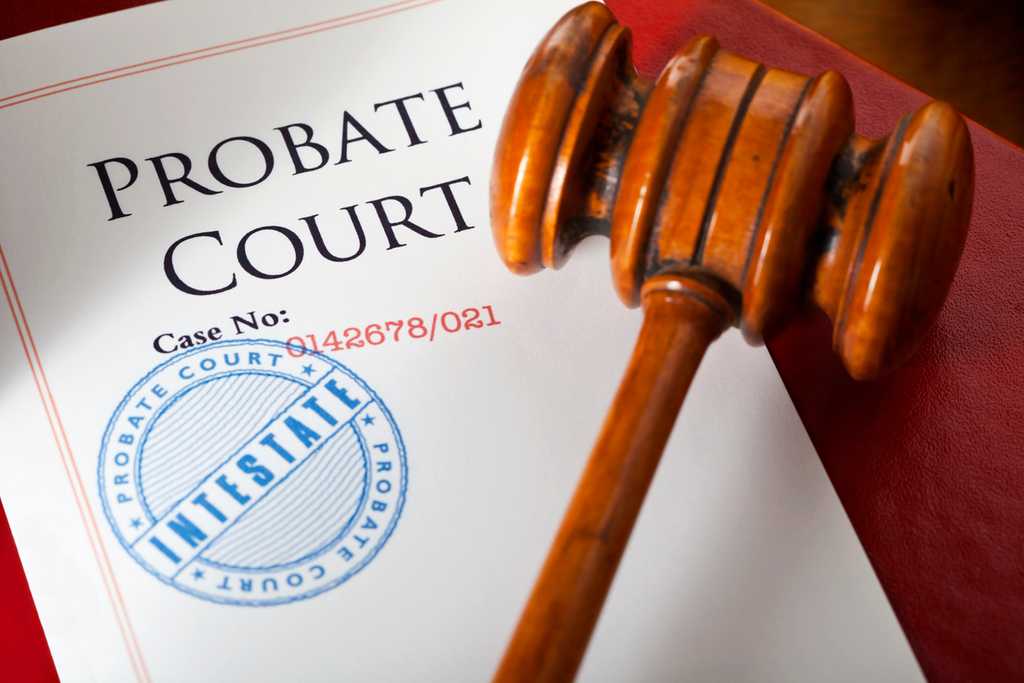If you don’t have a will, you’re not alone. A recent survey found that less than half of Americans (46%) have one. There are plenty of reasons why you may not have a last will and testament. Perhaps you think you’re too young, don’t believe you have anything significant to leave or can’t think of anyone specific to name as a beneficiary. In other cases, you may just keep putting it off to avoid having to think about death and what your loved ones will do after you’re gone.
The trouble is, intestacy AKA “not having a will” means others will have to decide what to do with your debts, assets and belongings after you’re gone. This includes decisions about rehoming your pets, what to do about sentimental items, collectibles and more. And if you leave any financial loose ends untied, your next of kin may have to deal with courts, taxes and creditors.
For the sake of your loved ones, spelling out your last wishes could help them honor your legacy with fewer complications during the difficult period of bereavement. Fortunately, creating a will is simpler than you may think — especially when you compare what happens if you die without one.
What Happens If You Die Without a Will
Plenty could go wrong if you die without a will. You’ll basically lose control of everything you’ve worked for, leaving strangers (the courts) to decide what to do on your behalf. If this sounds alarmist, consider that letting someone you don’t know decide for you doesn’t always work to your advantage.
Even if the outcome is great and the courts pay off your debts and distribute your remaining assets fairly to loved ones you would have chosen, the process is long and costly. Some of the funds that could have been left to a specific person will be used to cover probate court and attorney fees instead. Here’s what happens if you die without a will.
1. The Probate Process Gets Started
Not having a will when you die, leaving open bank accounts, credit cards, loans, retirement funds, investments or anything tangible that could be considered a debt or an asset, has to be dealt with by someone. The probate court will step in and place everything into your estate to organize and determine who gets what. The estate holds everything that could add or subtract from your net worth.
2. Your Accounts Could Be Frozen
Depending on the laws of your state your accounts could be frozen unless they’re owned jointly or you’re married. Spouses may have less trouble — the surviving spouse has access and can serve as the executor of your estate. However, this is not always the best plan since your spouse will bear the brunt of potential family feuds if others feel entitled to certain items or assets.
If you’re not married or have a more complicated situation, such as kids from multiple former spouses, your accounts could be frozen while the probate administrator sorts out what to do.
3. An Executor Is Appointed
After the court confirms there isn’t a valid will, an executor is appointed to locate all debts and assets, pay off remaining taxes and bills and identify the rightful beneficiaries. The process can be long. In addition, the executor may sell off assets or belongings to pay off debts. An executor must notify beneficiaries of what assets will be sold but does not need approval to move forward.
4. Assets Are Distributed
Once all assets are identified, debts and taxes are paid and beneficiaries designated, the remainder will be distributed. Probate courts typically sell all the remaining assets to distribute them. This could create lost opportunities since certain assets such as properties or investments may be liquidated at a less profitable time. Inheritors are typically spouses, followed by children. In the case of single adults, parents may be the inheritors.
As you can see, probate court does attempt to proceed as fairly as possible but may not make the most out of what you leave behind. Executors didn’t personally get to know you and don’t know your wishes about what assets you would have wanted to preserve or who you preferred to inherit them.
How Long Does Probate Last If You Die Without a Will?
If you die without a will, your loved ones could be stuck dealing with probate anywhere from several months (if they hired a lawyer) to up to two years without one. If they were financially dependent on you, probate court can be financially challenging at a very sensitive time.
How Much Does Probate Cost?
Probate court is not only lengthy but it can also be expensive. Probate can cost roughly three to eight percent of the assets left behind. It all depends on attorney, accounting and court fees, which can vary considerably by state. Some fees include:
- Probate filing fee: As much as $1,200 to start the proceedings
- Probate distribution fee: Often similar to the initial cost of filling
- Certificates: You’ll need to provide account ownership information for banks, IRAs, investments and more. They typically cost between $5 and $20 each.
- Attorney’s fees: Some states limit the fees. In California, a probate attorney can charge using a sliding scale. For estates of $100,000 or less, the fee is 4%.
How to Make a Will
Having a will is much easier and cheaper in case of your untimely death. Creating a will these days is much simpler than you think. There is free and paid software available that makes it easy to put together a last will and testament in no time, making sure you don't miss out on any important elements. They include:
- Doyourownwill.com: Always free, you can create a basic will and have access to additional forms such as power of attorney, living wills and guardianship forms.
- Rocket Lawyer: When you need additional advice, Rocket Lawyer has lawyers on standby to answer questions by live chat, email or phone. The fee is $39.99 per document created.
- Nolo’s Quicken WillMaker & Trust: For comprehensive access to 35 types of forms needed for more complex wills, Nolo’s Quicken WillMaker & Trust is a good choice. It doesn’t provide legal support but has helpful tutorials that help you properly set up a last will and testament for $99.99.
Once you create a will, it’s important to sign it in front of two witnesses to make it valid. The witnesses should not be beneficiaries or the will executor. Keep the original will in a safe place with other important documents, such as in a bank safety deposit box or a safe. Tell someone you trust about the will and its location, in case it needs to be presented to avoid a drawn-out probate process.

